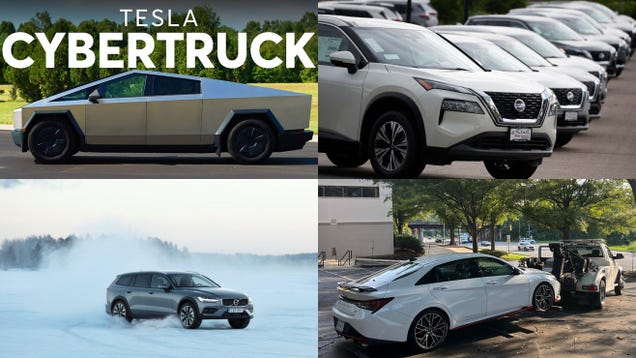Understanding the Polarizing Impact of Elon Musk and the Tesla Cybertruck
Elon Musk has become a household name, synonymous with innovation, controversy, and a distinct approach to business. While he has undeniably made significant contributions to the automotive industry, particularly with the Tesla Model S, his latest venture—the Tesla Cybertruck—has sparked intense debate. This article delves into the complexities surrounding Musk’s influence and the Cybertruck’s reception, providing insights into why these topics elicit such strong opinions.
Evaluating Elon Musk’s Influence on the Automotive Industry
Elon Musk’s impact on the automotive landscape cannot be overstated. The Tesla Model S, launched in 2012, revolutionized the electric vehicle (EV) market, proving that EVs could be both high-performance and desirable. According to a 2023 report by the International Energy Agency, Tesla accounted for approximately 14% of global electric car sales, underscoring Musk’s role in shaping consumer perceptions of electric mobility.
However, Musk’s approach often polarizes public opinion. Critics argue that his brash personality and controversial statements overshadow his achievements. For instance, his frequent use of social media to communicate corporate strategies has led to volatility in stock prices and raised concerns about corporate governance. A study published in the Journal of Business Ethics in 2022 highlighted the risks associated with leaders who prioritize personal branding over organizational integrity, suggesting that Musk’s style may not be a sustainable model for leadership.
The Tesla Cybertruck: A Design Dilemma
The Tesla Cybertruck, unveiled in 2019, has been a focal point of discussion and criticism. Its unconventional design—characterized by sharp angles and a stainless-steel exterior—has drawn mixed reactions. While some view it as a bold statement in automotive design, others see it as impractical and unattractive. A survey conducted by AutoTrader in early 2023 revealed that nearly 60% of respondents found the Cybertruck’s design unappealing, indicating a significant disconnect between Musk’s vision and consumer preferences.
Moreover, the Cybertruck’s production has faced numerous delays and setbacks, leading to skepticism about its viability. As of late 2023, Tesla has yet to deliver the vehicle at scale, raising questions about the company’s ability to execute on its ambitious promises. Industry analysts suggest that the Cybertruck’s future success hinges on its performance and functionality, which remain to be seen.
Addressing Consumer Concerns: Is the Cybertruck Worth the Hype?
For potential buyers, the question remains: is the Cybertruck worth the anticipation? While it boasts impressive specifications—such as a projected range of over 500 miles and the ability to tow up to 14,000 pounds—consumers must weigh these features against the vehicle’s unconventional aesthetics and the company’s track record of delivery.
Additionally, the Cybertruck’s pricing strategy has also sparked debate. Starting at around $40,000, it positions itself competitively within the electric truck market, but potential buyers must consider whether the unique design and features justify the investment. A case study from the automotive market in 2023 indicates that consumers are increasingly prioritizing practicality and reliability over novelty, suggesting that the Cybertruck may need to prove itself in real-world conditions to gain widespread acceptance.
The Future of Tesla and Musk’s Leadership
As Tesla continues to navigate the complexities of the automotive market, the future of the company—and Musk’s role within it—remains uncertain. While his innovative spirit has propelled Tesla to the forefront of the EV revolution, the challenges posed by the Cybertruck and Musk’s leadership style may necessitate a reevaluation of strategies moving forward.
Industry experts suggest that for Tesla to maintain its competitive edge, it must focus on improving production efficiency and addressing consumer concerns about product reliability. Furthermore, fostering a more inclusive corporate culture could mitigate some of the backlash against Musk’s polarizing persona, allowing the company to harness the full potential of its innovative capabilities.
In summary, the discourse surrounding Elon Musk and the Tesla Cybertruck encapsulates broader themes of innovation, consumer perception, and leadership in the automotive industry. As Tesla continues to evolve, it will be crucial for the company to balance its ambitious vision with the practical needs and preferences of its customers.

